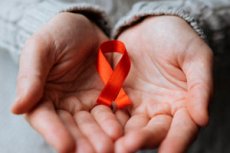New publications
HIV vaccine trial triggers key antibodies, nearing success
Last reviewed: 02.07.2025

All iLive content is medically reviewed or fact checked to ensure as much factual accuracy as possible.
We have strict sourcing guidelines and only link to reputable media sites, academic research institutions and, whenever possible, medically peer reviewed studies. Note that the numbers in parentheses ([1], [2], etc.) are clickable links to these studies.
If you feel that any of our content is inaccurate, out-of-date, or otherwise questionable, please select it and press Ctrl + Enter.

An HIV vaccine candidate developed at the Duke Human Vaccine Institute elicited low levels of broadly neutralizing HIV antibodies among a small group of people in a clinical trial in 2019.
The results, published May 17 in the journal Cell, not only confirm that the vaccine can induce these antibodies to fight different strains of HIV, but also show that the process can be initiated within weeks, kickstarting an important immune response.
The vaccine candidate targets a region on the outer envelope of HIV-1 called the membrane proximal outer region (MPER), which remains stable even as the virus mutates. Antibodies against this stable region on the outer envelope of HIV can block infection by many different circulating strains of HIV.
"This work represents a significant step forward because it shows that it is possible to induce antibodies through immunizations that neutralize the most challenging HIV strains," said senior author Barton F. Haynes, MD, director of the Duke Vaccine Institute. "Our next steps are to induce more potent neutralizing antibodies against other sites on HIV to prevent viral escape. We're not there yet, but the path forward is now much clearer."
The research team analyzed data from a phase I clinical trial of a vaccine candidate developed by Haynes and S. Munir Alam, PhD, at DHVI.
Twenty healthy, HIV-negative people participated in the trial. Fifteen participants received two of the planned four doses of the study vaccine, and five received three doses.
After just two immunizations, the vaccine showed a 95% serum response and a 100% CD4+ T-cell response in the blood — two key indicators demonstrating strong activation of the immune system. Most of the serum responses were directed at the part of the virus that the vaccine targets.
An important point is that broadly neutralizing antibodies were induced after just two doses.
The trial was stopped when one participant experienced a non-fatal allergic reaction, similar to rare cases reported with COVID-19 vaccination. The team investigated the cause of this event, which was likely related to the additive.
"A series of events are required to produce a broadly neutralizing antibody, and this typically takes several years after infection," said lead author Wilton Williams, PhD, associate professor of surgery at Duke University and a member of the DHVI.
"The challenge has always been to reproduce the necessary events in a shorter period of time with a vaccine. It was very exciting to see that with this vaccine molecule we were actually able to get neutralizing antibodies within a few weeks."
Other features of the vaccine were also promising, particularly the way key immune cells were left in a state of development that allowed them to continue to acquire mutations so they could evolve with the ever-changing virus.
The researchers noted that much work remains to be done to create a more robust response and target more regions of the virus's envelope. A successful HIV vaccine would likely have at least three components, all targeting different parts of the virus.
"Ultimately we'll need to hit all the vulnerable areas of the envelope so the virus can't escape," Haynes said.
"But this study demonstrates that broadly neutralizing antibodies can indeed be induced in people by vaccination. Now that we know induction is possible, we can repeat what we did here with antibodies targeting other vulnerable sites on the virus's envelope."
